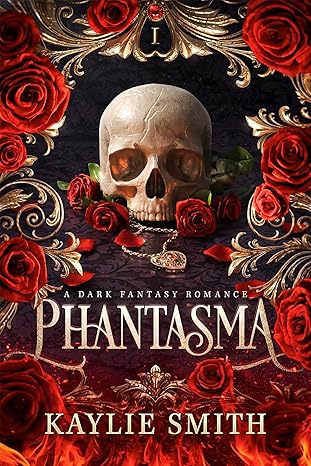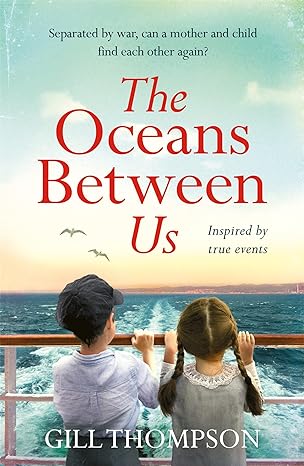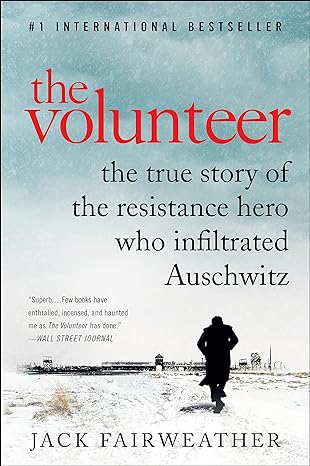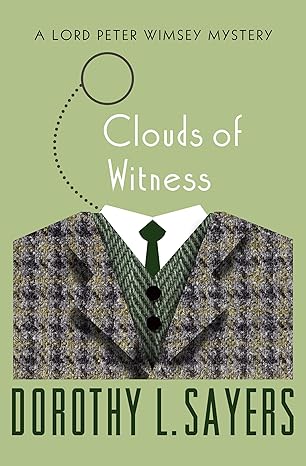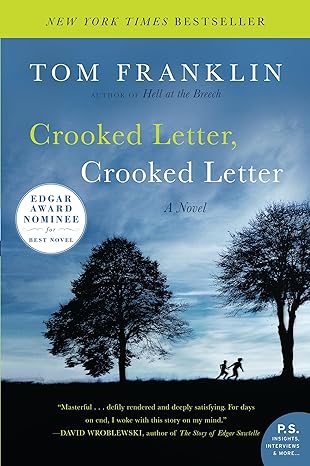
Gabriella (Hiatt Regency Classics Book 1)
He lost a wager . . . but won a treasure.
Due to a lost wager, the Duke of Ravenham is obliged to bring a pretty little nobody from the country into fashion among the high-sticklers of London Society. Ravenham would never refuse a debt of honor, no matter how unorthodox, so he overlooks Miss Gordon's vulgar relations to do what is necessary, escorting the unsophisticated chit to balls, etc. But what he expects to be an irksome duty turns out to be something quite different as he falls under the spell of his protege's innocent charm. When he lost that wager, he definitely never counted on losing his heart as well!
First impressions can be deceiving.
Miss Gabriella Gordon only came to London at her mother's and sister's insistence, for she'd much rather assist in running her father's veterinary practice than attempt to fit into fashionable society. No sooner has she arrived in London than the exalted (and exceedingly handsome) Duke of Ravenham comes to call. The reason is less than flattering, however: due to a lost wager, the Duke is forced to bring Gabriella into fashion, a "favor" she would certainly refuse if her family would let her. But the more time she spends in the dashing Duke's company, the more conflicted she feels— particularly when she discovers they have more in common than she ever dared dream.
BEST DEALS
About the Author
Brenda Hiatt is the New York Times and USA Today bestselling author of more than two dozen novels of sparkling romantic adventure. Her books (so far) include sweet and spicy historical romance, time travel romance, and young adult science fiction romance. In addition to writing, Brenda is passionate about embracing life to the fullest, to include scuba diving (she has over 60 dives to her credit), Taekwondo (where she is currently working toward her 4th degree black belt), hiking, traveling, and pursuing all kinds of new experiences and skills. She is a past president of Novelists, Inc, an international organization of multipublished novelists. Find out more at her website, http://brendahiatt.com You can also find Brenda on: Facebook: at FB.com/BrendaHiatt Instagram: @brendahiatt TikTok: @brendahiattauthor and Twitter: @Brenda_Hiatt. For the latest updates on Brenda's books (and two free short stories!) subscribe to her newsletter at http://brendahiatt.com/subscribe
Read Sample
Chapter 1
"GABRIELLA, I INSIST," SAID MRS. GORDON FIRMLY, SMOOTHING OUT THE LETTER WHICH LAY BEFORE HER ON THE BREAKFAST table and flicking an imaginary crumb off its well-perused surface. "It is extremely kind in your sister to make the offer at all, with you already past the usual age for a girl making her come-out in Society."
"An offer she has been most persistent in making these three years past," replied the girl across from her, impatiently winding a strand of her long, golden brown hair about one slim wrist. "You know very well that it was never my wish, nor Papa's, that I accept one of Angela's invitations."
"It is my wish, however," snapped her mother, "and your papa, being dead, God rest his soul, no longer has any say in the matter."
"And that's another thing, Mama," continued Gabriella in a carefully reasonable tone. "I will not yet be out of mourning next month, and so would be unable to attend any of those glittering social functions which Angela describes at such length, even if I were to go." She tried not to sound smug as she delivered what was surely an unanswerable argument.
"Nonsense!" Her mother dismissed such reasoning with a flick of her fingers. "You know as well as I that your papa would never have wanted you to deny yourself pleasure as a way of remembering him. Who in London is to know that he died in July rather than April, unless you see fit to bruit it about? I doubt that Angela will wear mourning through the Season."
"I rather doubt it, too," responded Gabriella with a touch of sourness that her mother, thankfully, did not notice. She had not seen her sister in nearly five years, even their father's funeral having been unable to drag her from her busy social schedule, but could not remember that young lady ever bowing to any consideration which might interfere with her own pleasure. She could not at all understand why Angela was so determined in her efforts to present her to the London ton but suspected, from what she knew of her sister, that Angela would find far more amusement in the endeavour than she would.
There was no point in telling her mother this, however. Angela had always been the apple of their mother's eye, with her fairylike blonde beauty and cultured airs. Mrs. Gordon had predicted, almost from her birth, that her eldest daughter would go far in the world; nor had she been mistaken. At nineteen, Angela had managed to catch the eye of Sir Seymour Platt, a young and tolerably wealthy baronet, who had married her and whisked her off to London to be (if her letters were to be believed) the reigning toast of the Town, and one of its leading hostesses. Mrs. Gordon was completely unable to fathom how her younger daughter could fail to dream of a similar conquest.
"But what about the practice?" Fifteen-year-old Gabe, whose presence both ladies had hitherto been inadvertently ignoring, broke into the lengthening silence. "We'll never be able to hold on to it if Brie leaves. Why, already more than half of the farmers are sending to Mr. Bennet over in White Rock instead of to us. What about that, Ma?"
Gabriella winced. While grateful for her brother's support, she was well aware that this was hardly the argument which would be likely to sway their mother. Mrs. Gordon had objected, even while her husband was alive, to her daughter's interest and involvement in his veterinary practice, and Brie considered herself lucky that her mother had not gone so far as to forbid her continued involvement in it since his death. What she didn't need right now was Gabe's reminding their mother of her unfeminine interests; if anything, it was likely to strengthen her determination to bundle Gabriella off to London!
"I spoke to Mr. Bennet yesterday," stated Mrs. Gordon calmly, causing both her children to gape at her in astonishment. She had never involved herself in the practice any more than was absolutely necessary, and not at all since their father died. "He has agreed to purchase the practice from us, along with all of your father's medicines and equipment, for a very useful sum. That seemed the wisest course since, if we wait, he will no doubt acquire most of it, anyway, with no compensation to us for poor Gabriel's years of work at building it up."
Gabe and Brie stared at their mother in stricken silence. Brie managed to find her voice first.
"Mother, how could you?" she asked in a horrified whisper. "The practice was to have been Gabe's! You know that was always Papa's intention."
"Your papa, God rest him, expected to carry on the practice himself until Gabe was of an age to become his partner. None of us could have foreseen the accident which took him last year. Why he couldn't have left the dratted lamb on that ledge... But that is over and done. What matters is how we are to live now." Two sets of eyes continued to accuse her, and she straightened her shoulders defensively.
"You said yourself that many of the farmers are already taking their business to White Rock. I fail to see how you thought we could possibly hold the practice together for several more years. Why, Gabe has not even finished his apprenticeship! Which reminds me Mr. Bennet said if Gabe were to go to school for a year or two, get some formal education, that he would be willing to take him on as an assistant afterwards. So it's not as though I had forgotten you." This last was delivered almost pleadingly to her son.
"Perhaps you are right, Mama," said Brie. She was beginning to recover from her shock, though Gabe was still looking rebellious. "I suppose we were deceiving ourselves to think we could go on as before without Papa. The farmers trust me, and Gabe, too, but there is no denying that neither of us is strong enough for the really heavy cases." Her eyes turned to her brother.
"Can you blame them for calling in Bennet for a difficult calving? You know as well as I do that in those cases knowledge is no substitute for plain brute strength." She still felt betrayed by what her mother had done, but had no desire to see a permanent rift in the family because of it. Gabe met her eyes, and some of the tension went out of his face.
"Maybe, so," he said reluctantly. "But I tell you to your head, Ma, that I want no part of being Bennet's assistant. I'll go to school if you want, but I'll apprentice elsewhere. Then maybe I'll come back here and give old Bennet some competition!"
"Does Mr. Bennet take over immediately, or are we to have a grace period?" asked Brie, her tone sharp in spite of her efforts at peacemaking.
"We decided on a two-week delay," answered her mother. "That should give us time to notify all the farmers of the change and to tie up the loose ends of the business. Now, if you will excuse me, I have correspondence to attend to." She rose swiftly and vacated the room, leaving Brie and Gabe to hash out the details themselves.
"Us!" sputtered Gabe sarcastically. "When has she ever concerned herself with the farmers or any other part of the practice which didn't come right into the house?"
"Now that's not fair," said Brie, though her feelings were much the same. "Don't you remember that pair of kids last spring? Mama went out to the barn to bottle-feed them twice or thrice a day for weeks. I'm not sure she didn't become a bit attached to them."
Gabe snorted. "She only did it because Papa asked her to." He caught his sister's look and relented. "Perhaps she did like the goats a little. But surely you can't think it right that she sold the practice right out from under us without a word!"
"No, I don't think it was right," agreed Brie with a sigh, "but I have to admit I can see why she did it. She knew we would never have agreed to it if she had asked us, though it has been increasingly obvious, even to me, that we really cannot handle it ourselves. Oh! I miss Papa so!" Her eyes suddenly filled with unshed tears, as her loss overwhelmed her again, as it did at odd moments.
Now it was Gabe's turn to take charge, showing a maturity beyond his years. "There, there, Brie, I miss him, too," he said, patting her shoulder comfortingly. "What we need to do right now, though, is work out which of us will go to which farms to spread the word. And, who knows? Maybe I'll like going to school. Where do you think I should go?"
These topics successfully diverted Brie from her incipient tears, and they fell to making plans for the day, the week and the year to come. Both carefully avoided the subject of Angela's invitation, although Brie knew her mother had by no means forgotten it and would bring it up again at the first opportunity.
In this she was not mistaken. Two days later, Gabe having left them alone while he went to help at a protracted lambing, Mrs. Gordon cornered her daughter in their small parlour and reintroduced the topic. This time she was well prepared, strategically outlining the advantages which would accrue to the whole family as a result of Gabriella's debut, and systematically overriding every objection brought forward. Brie's final defence was that she felt certain her father would not have approved, but her mother waved that consideration aside again.
"He only refused before because he needed you here in the spring to help with the birthings," she asserted, contrary to what Brie believed to be the truth. "Besides, you must remember his saying that one of these years you should go. This must be the year, before you are old enough to be considered a spinster."
"Surely, twenty is too old already," said Brie, but without much spirit. She knew her mother had won. Her mother knew it, too, and fell happily to discussing the particulars of her daughter's debut. Brie contributed little to the conversation, nodding or murmuring when some response on her part seemed called for, but Mrs. Gordon apparently had no fault to find with her subdued manner and continued to plan aloud.
"Angela will no doubt take you shopping at once, and you may trust to her excellent taste to outfit you in style. To fill the gap, we can have one or two of my old things altered to fit you, I suppose."
As soon as she could break away, Brie threw on a shawl and climbed to her favourite thinking spot, a low hill crowned by a flat stone outcropping within sight of the house.
Watching Gabriella's progress from a window, Mrs. Gordon marvelled again at the difference between her two daughters.
Angela had never been difficult to understand. Her dreams had been those of any normal young lady: a good match and a life of leisure. Those had also been her own dreams, when she had married Gabriel Gordon, second son of Viscount Chapin. While she had never admitted it to herself, and certainly would never have wished for her brother-in-law's death, it had nonetheless been in the back of her mind that he might conceivably die without heir, leaving the title and the comfortable estate that went with it to her husband.
That, of course, had never come to pass. Instead, it was Gabriel who had died, while his brother had two healthy sons. The families had not been close, though once or twice, when the children were much younger, they had been invited to visit Lord Chapin and his wife. The journey had been tedious, as the estate was located near the Scottish border, and Lady Chapin had treated Mrs. Gordon, who was herself granddaughter to an earl, with such condescension that the connection had been all but dropped.
Mrs. Gordon had truly loved her husband, however, and, once resigned that she would never be a viscountess, had drawn what contentment she could from her lot in life, especially when the opportunity to live out her girlish dreams through Angela presented itself. Her eldest daughter's letters, although more infrequent than she could wish, were ever a source of delight to her and proudly circulated among her few friends in the district. It rankled somewhat that an invitation to herself was never included, but with both girls in London, she hoped that oversight might soon be remedied.
Gabriella, on the other hand, had always been a puzzle to her mother. She seemed to want no more out of life than to spend her days tramping round the nearby farms and few estates tending to sick animals-hardly a fit occupation for a lady. And a lady she was Mrs. Gordon had seen to that. Brie could stitch, draw, play the pianoforte and speak French with the best of them, though one would never guess it to look at her. A Season in London would be the very thing for her. It would take her mind off of her unladylike pursuits and turn them into proper channels. She felt she could trust Angela to see to that.
Seated atop the knoll, Brie was also considering her coming Season in London, though with considerably less complacency. These rolling Cotswold Hills in northern Gloucestershire had held a firm grip on her heart for as long as she could remember, as had the animals she had grown to know and love during her years of immersion in her father's veterinary practice. Of course, there would be plenty of horses in London, and perhaps a few dogs, but she would hardly be allowed to concern herself with them. And what of the sheep and cows which dotted the beautiful landscape here?
It would only be for two months, she reminded herself. Then, no matter what arguments Mama and Angela put forth, she would return to this, her true home. She drew her knees up to her chin and gazed lovingly at the small manor house and its attendant outbuildings; more than a farm, but not quite an estate, it had always been the centre of her world. They received rent from some half dozen farmers, but their real income had come from her father's practice. Where was it to come from now? Her mother had not named a sum, but Brie doubted that what Mr. Bennet might be willing to pay would support them indefinitely.
The sun had set, flinging its last bright rays across the evening sky in a beautiful panorama which Brie never tired of watching. As the air grew cooler, she drew her thick hair, which grew past her waist, about her shoulders as a second shawl. Papa had always loved her hair, she recalled fondly, and had always overruled Mama when she insisted that it was high time it was cut. Her glory, he had called it. Brie herself had always considered it her one and only claim to beauty.
Flinging the golden brown mass behind her, she stood up, recognising Gabe's tuneless whistle as he returned from Mr. Donelly's farm. She ran lightly down the hill to question him about the lambing, her "glory" streaming out behind her.
"How did you fare?" she asked as she reached the bottom, though she knew that if any lambs had died her brother would not be whistling.
"Well enough, but some work to it," replied Gabe with a smile. "Old Donelly had been trying and trying to get that lamb to come. Turned out that lamb was twins, and he had the nose of one lying on the hind feet of the other. Of course they wouldn't budge!"
Brie chuckled along with him. "I wish I'd been there instead of here," she said wistfully.
"Ma still on at you?" asked Gabe in quick concern.
"I'm afraid so. Worse, I've finally given in. Without the practice to keep up, I don't have much reason to hold out anymore." "Oh, Brie!" Gabe gave her a startled glance. "But London—you know what Papa always used to say: that all the wickedest people in England are gathered there."
"But he let Angela go," replied Brie defensively, although Gabe was only echoing her own thoughts.
"Only after she and Mother plagued him to death about it. He always did give in to Mother about Angela, you know. But it was different with you." That was true. There had always been a special closeness between Brie and her father, and she had drawn her view of the world, and life, from him rather than from her mother.
"Besides," Gabe continued, "Papa always said that we could never be as truly happy in London as we are here." He had often disagreed with their father on that point, Brie recalled, but no doubt found it a convenient one to bring up now.
"Yes, but he also said it was up to us to make our own happiness in this world," she pointed out, though with an inward sigh. "If I stand by everything he taught us, I suppose I can work at that in London as well as here. Besides, it's only for two months." That thought was rapidly becoming a talisman against her dread of the great city.
"You know, I'll wager London ain't half so bad as Papa always painted it," said Gabe, suddenly reversing his position after a moment's thought. "Do you suppose Angela would let me come, too?"
"I wouldn't think so, Gabe. She has never mentioned it, at any rate. Besides," she said more forcefully as a sudden thought struck her, "if you came, Mama would certainly come, as well, and then she and Angela would conspire against our ever returning to the country. You know Mama always said she preferred Town life and only agreed to live here for Papa's sake."
"She wouldn't sell the manor and all without telling us, would she?" asked Gabe in sudden alarm.
"She can't," replied Brie simply. "It is entailed, which means it is yours by right-and you can't sell it, either," she concluded with some satisfaction.
"As if I would!" exclaimed her brother, obviously hurt that she could think him capable of such villainy.
"Come on," said Brie, taking his arm and steering him towards the house. "You must be famished. Tell me all about the lambing."
Chatting comfortably about the subject dearest to both of their hearts, the two young Gordons turned the corner of the house to enter the well-lighted kitchen at the rear.
Chapter 2
LADY PLATT PUT ASIDE THE LETTER FROM HER MOTHER WITH MIXED FEELINGS. SHE SUPPOSED SHE SHOULD BE GLAD THAT little Gabriella was finally going to accept her kind offer to bring her out, but after three years of asking and being refused she had become complacent about doing the proper thing-offering-without having to go to the trouble of following through.
In truth, Angela had only offered in the first place because it had come to her well-shaped ears that she was acquiring a reputation for hardheartedness. That was undoubtedly because of the public set-down she'd been forced to give to that callow Mr. Jenkins, who had been driving her to distraction with his declarations of undying love. Certainly, he had deserved it; he had begun to take up time she would much rather have spent with more agreeable admirers.
It had occurred to her then that if the world could see how generous and kind she was to sponsor her poor, homely little sister into Society, such unjust rumours would be overset. And who could tell? It was even conceivable (albeit barely) that Gabriella might make a creditable match and draw off their mother's increasingly broad hints about money troubles.
Angela told herself that these reasonings held as good now as they had three Seasons ago. She hated to admit it, but her position in Society had slipped a bit lately and could use just this sort of boost. Perhaps Lady Jersey would even take one of her eccentric likings to Gabriella and forgive Angela the criticism she had made (with the kindest intentions, of course!) about that lady's dreadful purple turban the spring before last. The Platts' vouchers to Almack's had somehow failed to be renewed after that little incident, a situation Angela would give much to remedy. Rising gracefully, she rang for the housekeeper.
"Mrs. Madsen," she said decisively when that worthy arrived, "my sister Gabriella will be joining us in a week's time to make her bows to Society. Pray have the maids prepare the Blue Room for her stay." She smiled to herself as the housekeeper left to carry out her orders. No one was going to accuse Lady Angela Platt of hardheartedness this Season!
Copyright: Brenda Hiatt

